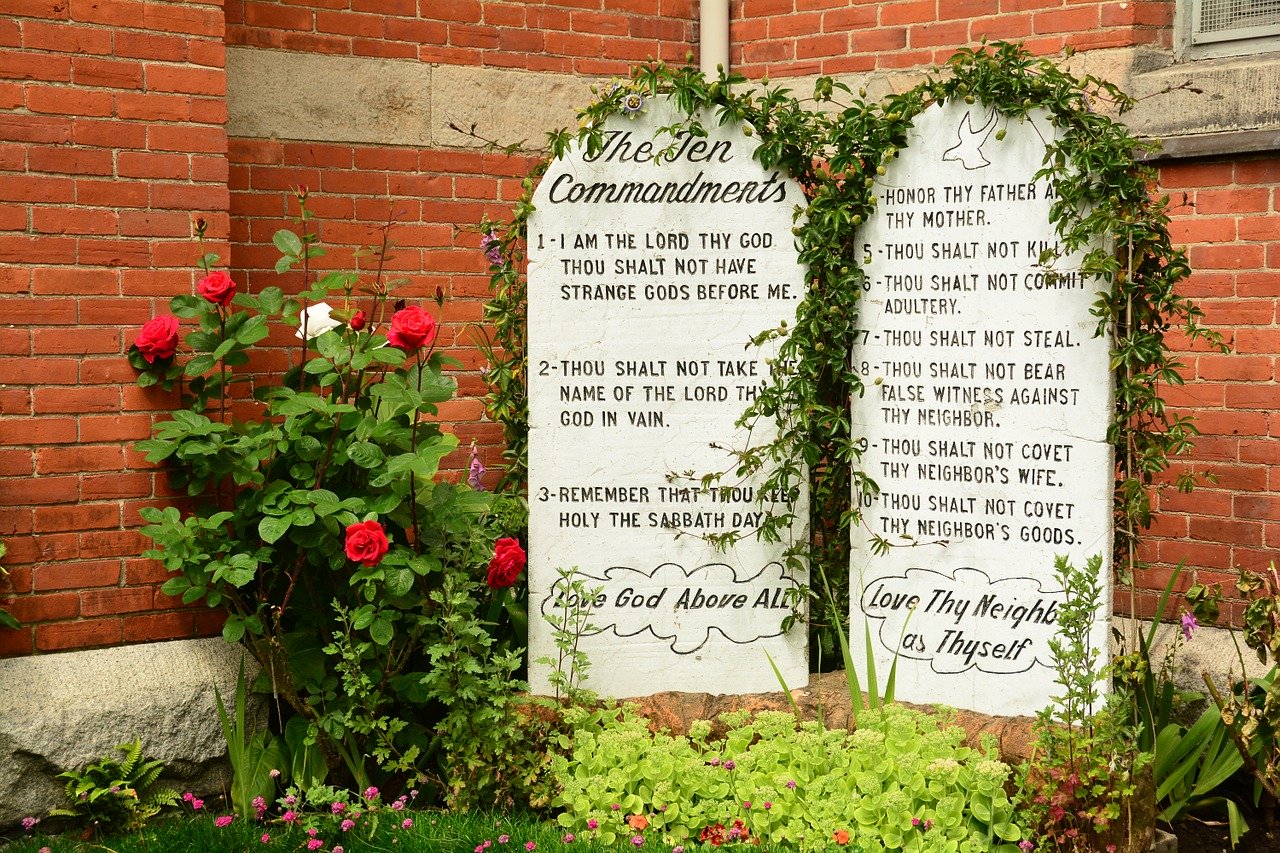Are you curious about the meaning and significance of tithing according to the Bible? Look no further. The concept of tithing originates from the Old Testament in the Bible. Tithing, derived from the word “tenth,” means giving a tenth or 10 percent of one’s possessions or produce (Genesis 14:20; Leviticus 27:30). The primary purpose of the biblical tithe was to support the Levites and the poor (Numbers 18:21; Deuteronomy 14:28-29).
In this comprehensive article, we’ll help shed light on the subject. Let’s explore the biblical definition of tithing and its role within the Christian faith.
Table of Contents
- Summary
- Key Takeaways
- What Is the Biblical Meaning of Tithing?
- The Biblical Origins of Tithing Before the Law of Moses
- The Significance of Tithing Under the Law of Moses
- Other Tithe Definitions in the Old Testament
- Tithing in the New Testament
- Understanding the Definition of Tithing in a Biblical Context
- Discover MORE of the Biblical Truth About Tithes
Summary
This comprehensive guide explores the biblical definition of tithing, tracing its origins from Abram (later Abraham) and Jacob to its significance under the Law of Moses. Tithing, meaning giving a tenth of ancient Israel’s agricultural produce as an offering to God or for religious purposes, was practiced voluntarily before the Mosaic Law and later became mandatory for ancient Israel.
The Old Testament describes the nature of tithing (agricultural produce and livestock), who was required to give tithes (ancient Israel), and who was eligible to receive tithes (Levites, widows, the fatherless, and strangers within Israel).
Key Takeaways
- Tithing, rooted in biblical tradition, involves giving a tenth or 10% of one’s agricultural resources as an offering to God or for religious purposes.
- Tithing can be traced back to Abram and Jacob before it became a religious law for the Hebrew Israelites under the Mosaic Law.
- The Old Testament describes tithing as a practice that supported the Levitical priesthood, the maintenance of the Temple, and met the needs of the poor.
- The New Testament mentions tithing within the context of the Hebrews’ adherence to the Mosaic Law and the superiority of Jesus as the ultimate High Priest.
What Is the Biblical Meaning of Tithing?

Tithing is a practice deeply rooted in biblical tradition, with historical and spiritual significance. The term “tithe” originates from the Hebrew word “ma’aser,” which means “a tenth” or “tenth part.”
In the Old Testament, under the Mosaic Law, the biblical definition of a “tithe” is a tenth or 10% of the ancient Israelites’ agricultural produce and livestock set apart to support the Levitical priesthood and the maintenance of the Tabernacle (later the Temple). This tithe also provided sustenance for the widows, orphans, and strangers.
The Biblical Origins of Tithing Before the Law of Moses
Long before the Mosaic Law and the Ten Commandments, Abram (later renamed Abraham) and Jacob engaged in tithing. Let’s step back in time to explore this ancient practice before it became a religious law for the Hebrew Israelites.
Abram Gives the First Tithe
Biblical tithing is rooted in the Old Testament. It is first mentioned in the book of Genesis when Abraham, after a victorious battle, gave a tenth of his spoils to Melchizedek, a priest of God (Genesis 14:20). Three unique characteristics of Abarham’s tithe help us understand tithing from a sound biblical understanding:
- Abram (later Abraham) did not tithe from his wealth.
- Abram didn’t practice tithing on an ongoing basis. The Bible does not mention him continuing to tithe, which suggests his tithe wasn’t a normative practice.
- Abram’s tithe was voluntary and predated the Mosaic Law (i.e., the Law Moses), often referred to as pre-law tithing.
So, Abram likely tithed a portion of the spoil because it was a common cultural practice in the Near East region where he lived. For example, pagan societies such as ancient Mesopotamia and Babylon gave their kings and deities tithes.
Portions of agricultural products and livestock to their gods, priests, and temples as a form of taxation or religious duty. It’s important to note that their forms of tithing predate the Bible. Therefore, Abram gave a tithe based on a social custom, not a command from God.
Jacob’s Makes a Vow to the Lord
The next biblical account of tithing involves Jacob. He is the son of Isaac (Abraham’s son) and Rebekah. Jacob is the father of the twelve sons who became the heads of the twelve tribes of Israel. Jacob’s vow to tithe to the LORD is a significant event in the biblical narrative. This vow appears in Genesis 28:20-22:
Then Jacob made a vow, saying:
“If God will be with me and will watch over me on this journey I am taking and will give me food to eat and clothes to wear so that I return safely to my father’s household, then the LORD will be my God and this stone that I have set up as a pillar will be God’s house, and of all that you give me I will give you a tenth.”
Here’s what we know about Jacob’s vow to tithe. First, the tithe was conditional. He promised to give a tenth of all that God would provide for him during his journey, but only if God would protect and provide for him. Second, it marked a turning point in his spiritual journey.
He acknowledged the LORD as his God, indicating a commitment to follow and serve Him. His tithe vow expressed his gratitude and recognition of God’s presence and provision during a challenging time.
Pre-Mosaic Tithe Practices
Abram and Jacob practiced tithing before the Mosaic Law, which made the practice mandatory for ancient Israel. Abram gave a tenth of his spoils to Melchizedek, and Jacob promised a tenth of everything to God if He’d watch over him. In these examples of pre-law tithing, we see their acts were voluntary based on their day’s social customs.
The Significance of Tithing Under the Law of Moses

The Mosaic Law (i.e., the Law of Moses) is a set of rules God gave Moses on Mount Sinai for the Israelites to follow (Exodus 20-23). Think of it like an extensive guidebook for how they should live and worship. One of those rules was about tithing, which means giving a tenth of livestock and crops to God. The first command to tithe appears in the Book of Leviticus.
Lessons from Leviticus on Tithing
The Book of Leviticus is a central text detailing the ancient Israelites’ rituals, laws, and priestly duties. Its name stems from the Levites, the tribe assigned to serve in the Tabernacle (later the Temple). Leviticus provides intricate instructions on offerings, ceremonies, and moral behaviors through its chapters. This book shows the legal implementation of the tithe.
Leviticus 27:30 states, “A tithe of everything from the land, whether grain from the soil or fruit from the trees, belongs to the Lord; it is holy to the Lord.”
This verse underscores several lessons the Lord wanted the Israelites to learn. These include:
- Acknowledging all their blessings come from the Lord
- Keeping the Lord first in all that they do
- Expressing gratitude for the Lord’s blessing
- Trusting the Lord as the source of all their provision
The Book of Leviticus introduces tithing as a command under the Mosaic Law. The Lord uses the tithe as a ceremonial act, teaching the Israelites the importance of expressing honor, faith, and gratitude.
Numbers’ Elaboration on Biblical Tithing
The Book of Numbers expands on the definition of tithing in the Bible. Specifically, it provides more detailed instructions about tithing to the Levites. Numbers 18:21,23 specifies the Israelites give tithes to the Levites for their service in the Tent of Meeting.
“And, behold, I have given the children of Levi all the tenth in Israel for an inheritance, for their service which they serve, even the service of the tabernacle of the congregation.”
“But the Levites shall do the service of the tabernacle of the congregation, and they shall bear their iniquity: it shall be a statute for ever throughout your generations, that among the children of Israel they have no inheritance.”
The Lord required Israel to give the Levites a tithe. Unlike other tribes, the Levites were not given a land inheritance in Canaan because their “inheritance” was the Lord Himself. Instead of farming or land-based work, their duty was to perform the religious and ceremonial duties in the Tabernacle, serving as priests and caretakers. Numbers 18:20-21 outlines this requirement:
“The Lord said to Aaron, ‘You will have no inheritance in their land, nor will you have any share among them; I am your share and your inheritance among the Israelites. I give to the Levites all the tithes in Israel as their inheritance in return for the work they do while serving at the tent of meeting.'”
Foundation of Tithing in the Book of Number
The Book of Numbers lays a foundation for what the biblical tithe is. Here’s a simple definition of the tithe: a tenth of ancient Israel’s agricultural produce and livestock given to the tribe of Levi. Additionally, the rest of the Old Testament reaffirms this definition.
Other Tithe Definitions in the Old Testament

There are several books in the Old Testament that reference tithes. Here are some references from the King James Version (KJV):
The Book of Deuteronomy
Deuteronomy 14:22-29: This passage extensively discusses the tithe, instructing the Israelites on how to set aside a tenth of their produce every year and where and how it should be consumed. Particularly, verse 22 states: “Thou shalt truly tithe all the increase of thy seed, that the field bringeth forth year by year.”
The Second Book of Chronicles
2 Chronicles 31:5-6:
“And as soon as the commandment came abroad, the children of Israel brought in abundance the firstfruits of corn, wine, and oil, and honey, and of all the increase of the field; and the tithe of all things brought they in abundantly. And concerning the children of Israel and Judah, that dwelt in the cities of Judah, they also brought in the tithe of oxen and sheep, and the tithe of holy things which were consecrated unto the LORD their God, and laid them by heaps.”
The Book of Nehemiah
Nehemiah 10:37-38:
“And that we should bring the firstfruits of our dough, and our offerings, and the fruit of all manner of trees, of wine and of oil, unto the priests, to the chambers of the house of our God; and the tithes of our ground unto the Levites, that the same Levites might have the tithes in all the cities of our tillage. And the priest the son of Aaron shall be with the Levites, when the Levites take tithes: and the Levites shall bring up the tithe of the tithes unto the house of our God, to the chambers, into the treasure house.”
The Book of Amos
Amos 4:4: “Come to Bethel, and transgress; at Gilgal multiply transgression; and bring your sacrifices every morning, and your tithes after three years.”
The Book of Malachi
Malachi 3:8-10:
“Will a man rob God? Yet ye have robbed me. But ye say, Wherein have we robbed thee? In tithes and offerings. Ye are cursed with a curse: for ye have robbed me, even this whole nation. Bring ye all the tithes into the storehouse, that there may be meat in mine house, and prove me now herewith, saith the LORD of hosts, if I will not open you the windows of heaven, and pour you out a blessing, that there shall not be room enough to receive it.”
In the Old Testament, tithing was a well-established practice. The Lord instructed the Israelites to give a tenth of their crops and livestock to support the Levitical priesthood and the Temple. Additionally, the tithe system provided for those in need, such as widows, orphans, and strangers (Deuteronomy 26:12-13, KJV). This act of generosity and compassion reflects God’s heart for those in need and serves as a reminder to prioritize caring for the less fortunate.
The bottom line? The Old Testament clearly describes the nature of tithes (crops and livestock), who was required to give tithes (ancient Israel), and who was eligible to receive tithes (Levites, widows, the fatherless, and strangers within Israel).
Now, what about the biblical definition of tithe in the New Testament? Does it change or remain the same? Keep reading to find out.
Tithing in the New Testament

The first mention of tithes in the New Testament appears in the Gospels. For example, Jesus mentions tithing in Matthew 23:23. In the verse, Jesus chastises the Pharisees’ hypocrisy. Even though they prided themselves on being strict followers of the Law of Moses, they neglected justice, mercy, and faithfulness. In other words, they thought they were above reproach just because they tithed mint, dill, and cumin.
Remember, at this time, the New Testament wasn’t established. The Hebrews were still living under the Mosaic Law. Also, the Levitical priesthood was still in effect. Therefore, under the Law, any Israelite who farmed, raised livestock, or had a garden must give ten percent of their agricultural produce, cattle, and spices. The Hebrew people took their tithes to the Levites at the Temple.
In the Gospels, Jesus mentions the New Covenant (or New Testament) during the Last Supper. Here’s the verse from the King James Version (KJV):
Luke 22:20: “Likewise also the cup after supper, saying, This cup is the new testament in my blood, which is shed for you.”
While the term “New Covenant” is used here, the Apostles expanded and implemented the concept. States another way: the New Testament isn’t fully realized until after the Gospels (after the death, burial, and resurrection of Jesus).
Book Hebrews
The Book of Hebrews is an epistle addressing early Christians, particularly Hebrew believers. The letter emphasizes the superiority of Jesus the Christ over the Old Covenant. The author aimed to reassure and strengthen these believers who faced doubts and persecution, encouraging them not to revert to the Law of Moses. Instead, the author wants them to recognize Jesus as the ultimate High Priest and mediator of a better covenant.
Additionally, the Book of Hebrews is the last time tithes appear in the New Testament. And it’s only mentioned concerning Melchizedek and Abraham. Here are the verses from the King James Version (KJV) that discuss tithes:
- Hebrews 7:2: “To whom also Abraham gave a tenth part of all; first being by interpretation King of righteousness, and after that also King of Salem, which is, King of peace;”
- Hebrews 7:4: “Now consider how great this man was, unto whom even the patriarch Abraham gave the tenth of the spoils.”
- Hebrews 7:5-6: “And verily they that are of the sons of Levi, who receive the office of the priesthood, have a commandment to take tithes of the people according to the law, that is, of their brethren, though they come out of the loins of Abraham: But he whose descent is not counted from them received tithes of Abraham and blessed him that had the promises.”
- Hebrews 7:8-9: “And here men that die receive tithes; but there he receiveth them, of whom it is witnessed that he liveth. And as I may so say, Levi also, who receiveth tithes, paid tithes in Abraham.”
These verses in Hebrews chapter 7 delve into the significance of Melchizedek, drawing a comparison between him and Jesus Christ. The author uses the act of Abraham’s tithing to Melchizedek as a foundational argument.
Understanding the Definition of Tithing in a Biblical Context
The biblical definition is straightforward. The Hebrew meaning of a tithe is ma-aser, which refers to a tenth or one-tenth. Before the Mosaic Law, Abram (later Abraham) gave a tenth of the spoils of war to King Melchizedek. Later, his grandson Jacob promised to give the Lord in exchange for blessings.
The Lord establishes tithe command in the Book of Leviticus. At this point, the Lord gave ancient Israel the Law of Moses. From this point to the Gospels, the Israelites brought a tenth of their crops, fruits, and flocks to the designated place of worship. This act of tithing supported the Levites and met the needs of Israel’s poor.
Discover MORE of the Biblical Truth About Tithes

If you want to discover more tithe facts, I encourage you to get a copy of The Tithing Hoax. This book provides in-depth information on how to give the RIGHT way. It also offers helpful tips based on Scripture.
📌 DISCOVER THE TRUTH ABOUT TITHES PROSPERITY GOSPEL PREACHERS DON’T WANT YOU TO KNOW. 👉 👉Click this link.
Thanks for reading, and be blessed!








